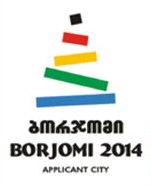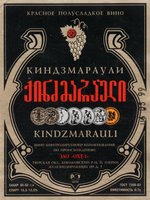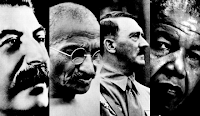 Last Thursday 4 May, breakaway Georgian republic of Abkhazia declared its intention to join the Commonwealth of Independent States, Interfax reports. Reactions from Tbilisi and Kiyev were quick. Both Georgia and Ukraine now seriously consider leaving the CIS.
Last Thursday 4 May, breakaway Georgian republic of Abkhazia declared its intention to join the Commonwealth of Independent States, Interfax reports. Reactions from Tbilisi and Kiyev were quick. Both Georgia and Ukraine now seriously consider leaving the CIS.Abkhazi leader Sergei Bagapsh stated that: "Abkhazia's priorities are membership of the Commonwealth of Independent States and further rapprochement with Russia." Last August, Bagapsh openly confirmed his ambition of "Abkhazia's secession from Georgia and de facto merger with Russia." Now he sets the goal to join the CIS by the end of the year, but "Abkhazia's further political and economic rapprochement with Russia is the central issue. We remain adherent to our proposals on Abkhazia's associated membership of Russia," Bagapsh concluded, according to Interfax.
Reactions from Tbilisi and Kiyev
Bagapsh's declaration was immediately met with stern reaction from Georgia and Ukraine. Georgian president Saakashvili ordered his government to assess whether "it is worth remaining in the CIS," Nezavisimaya Gazeta reports. He went on to say that the conflict in Abkhazia back in 1993 had "forced Georgia to sign the declaration of joining the CIS." Now Georgia is seriously contemplating to leave the CIS.
On Friday, Ukraine also for the first time officially declared that the country might leave the CIS. Kiyev has for long been disappointed with how the organisation works. Thus, speaking about a Ukrainian withdrawal from the CIS, Yushchenko's foreign policy advisor, Kostyantyn Tymoshenko, said that "if there are no results, the question arises." During last week's Vilnius Forum, president Yushchenko also characterised integration with the EU and NATO his main foreign policy objective, according to NG. Such ambtions might prove incompatible with remaining a CIS-member.
A future for the CIS?
This puts the future of the CIS even more in question than previously has been the case. Today, few of its members - not even Russia - have any
 great hope in the organisation. The original split in perceptions of its purpose, viz. political as opposed to economic cooperation, remains. The political aim is epitomised by the CIS Collective Security Treaty, signed by six countries - Russia, Armenia, Kazakhstan, Kyrgyzstan, Tajikistan, and Belarus. Turning to CIS economic cooperation, it can only be characterised as a resounding failure. Thus, demands were raised to find alternative to the CIS in lieu of its defunct economic record.
great hope in the organisation. The original split in perceptions of its purpose, viz. political as opposed to economic cooperation, remains. The political aim is epitomised by the CIS Collective Security Treaty, signed by six countries - Russia, Armenia, Kazakhstan, Kyrgyzstan, Tajikistan, and Belarus. Turning to CIS economic cooperation, it can only be characterised as a resounding failure. Thus, demands were raised to find alternative to the CIS in lieu of its defunct economic record.GUUAM instead of CIS?
In 1997, GUUAM was founded by the CIS-members not party to the Collective Security Treaty, with the single exception of Turkmenistan. GUUAM comprises Georgia,
 Ukraine, Uzbekistan (1999), Azerbaijan, and Moldova. Its aim was to fulfil the original purpose of the CIS by economic cooperation and free trade. Excluding Russia, GUUAM has remained on the second echelon of post-soviet foreign policy, and the organisation has been careful not to portray itself as a counterbalance to members of the Collective Security Treaty, although it seems evident that so is the case. Georgia and Ukraine have also been GUUAM's most eager members in pursuing a regional policy independent from Russian influence.
Ukraine, Uzbekistan (1999), Azerbaijan, and Moldova. Its aim was to fulfil the original purpose of the CIS by economic cooperation and free trade. Excluding Russia, GUUAM has remained on the second echelon of post-soviet foreign policy, and the organisation has been careful not to portray itself as a counterbalance to members of the Collective Security Treaty, although it seems evident that so is the case. Georgia and Ukraine have also been GUUAM's most eager members in pursuing a regional policy independent from Russian influence.Borjomi - a way forward?
To take the matter further, Saakashvili and Yushchenko, last August, issued the Borjomi Declaration, calling on their neighbours to unite "efforts to turn the Baltic-Black-Caspian Sea region into a sea of democracy, stability and security, to make it a fully integrated region of Europe and of the Democratic and Atlantic community." In Moscow's eyes, Borjomi's outright western orientation was seen as yet another attempt to insulate Russia and curve its influence over the near abroad. Whereas there may be some truth to Moscow's contentions on this point, one should however not shy away from the paramount fact of the matter: Russia and the CIS have little to offer in comparison to the fruits of western integration. That Georgia and Ukraine are the first to publicly raise their concerns whether to remain CIS-members should therefore come as no surprise, as they have seized the opportunity of western integration offered to them by their coloured revolutions.
The Abkhazi question
All in all, one must conclude that there is more to the issue than simply a statement by a renegade republic leader. As for Abkhazia, the region broke away from Georgia already in 1992. This separatist republic remains unrecognised by the international community, and there is no secret that Abkhazia would not survive long without Russia's backing.
 For long, Moscow has remained ambivalent on how to deal with the issue. As the UN, the EU and the OSCE insist that Abkhazia is part of Georgia, Russia has been reluctant to recognise its de facto independence. Instead, Abkhazia has oscillated between outright independence and associate membership in the Russian Federation. Today, most Abkhazis hold Russian citizenship, facilitating a potential future incorporation into Russia. This is also what Georgia claims is Moscow's long-term ambition, making the issue an international bilateral conflict instead of an internal secessionist conflict. So, is it a mere coincidence that a statement by some half-wit chieftain of a secessionist region would seem to shake the foundations of the entire CIS? Why should Abkhazia's wholly unrealistic ambitions to join the CIS spark off such stern reactions from both Georgia and Ukraine?
For long, Moscow has remained ambivalent on how to deal with the issue. As the UN, the EU and the OSCE insist that Abkhazia is part of Georgia, Russia has been reluctant to recognise its de facto independence. Instead, Abkhazia has oscillated between outright independence and associate membership in the Russian Federation. Today, most Abkhazis hold Russian citizenship, facilitating a potential future incorporation into Russia. This is also what Georgia claims is Moscow's long-term ambition, making the issue an international bilateral conflict instead of an internal secessionist conflict. So, is it a mere coincidence that a statement by some half-wit chieftain of a secessionist region would seem to shake the foundations of the entire CIS? Why should Abkhazia's wholly unrealistic ambitions to join the CIS spark off such stern reactions from both Georgia and Ukraine?A pretext for divorce?
 Bagapsh's statement coincided with US vice president Cheney's critique of Russia at the Vilnius conference last week, shows that there is more to this than first expected. Third, the declared western orientation of Georgia and Ukraine - reiterated in Vilnius - serves only to underline the basic contradiction in clinging on to an imagined union by a post-soviet Commonwealth. From Moscow's point of view, the CIS is to little avail as long as the organisation cannot be used as an instrument for Russia's de facto power and influence over most CIS-countries. So, both parties want out. Georgia and Ukraine want to go west. Russia wants to rid itself of difficult CIS-members to better control the organisation. Fourth, were Ukraine and Georgia to leave the CIS, remaining members would, in the process, be left to the best of their abilities to deal with Russian dominance over the CIS.
Bagapsh's statement coincided with US vice president Cheney's critique of Russia at the Vilnius conference last week, shows that there is more to this than first expected. Third, the declared western orientation of Georgia and Ukraine - reiterated in Vilnius - serves only to underline the basic contradiction in clinging on to an imagined union by a post-soviet Commonwealth. From Moscow's point of view, the CIS is to little avail as long as the organisation cannot be used as an instrument for Russia's de facto power and influence over most CIS-countries. So, both parties want out. Georgia and Ukraine want to go west. Russia wants to rid itself of difficult CIS-members to better control the organisation. Fourth, were Ukraine and Georgia to leave the CIS, remaining members would, in the process, be left to the best of their abilities to deal with Russian dominance over the CIS. To conclude, it is remarkable how willingly Georgia and Ukraine swallowed Russia's bait - hook, line and sinker. Provided that considerations to other CIS-members do not prevail, it appears that Ukraine and Georgia will go west while the rest are left to their own devices. Going separate ways in concord is no loss. What such a split of the CIS may constitute, however, is part of a division of the spoils between Russian and US influence over post-soviet space, at a time when their strategic partnership seems to have come to the end of the road. Then, one might ask how much the sovereign choice of the nations and peoples of Central Asia is worth to the great powers of global politics. Would a halfling state join and make the giants leave, it might also well constitute the moral choice of halflings and not of the great giants. That is perhaps also the lesson of our times, that when power talks morale steps aside: "Erst kommt das Freßen, dann kommt die Moral." It remains to be seen how Great the Game will be played, and with what appetite.
CIS, Georgia, Abkhazia, Ukraine, Russia, GUUAM, Borjomi















































